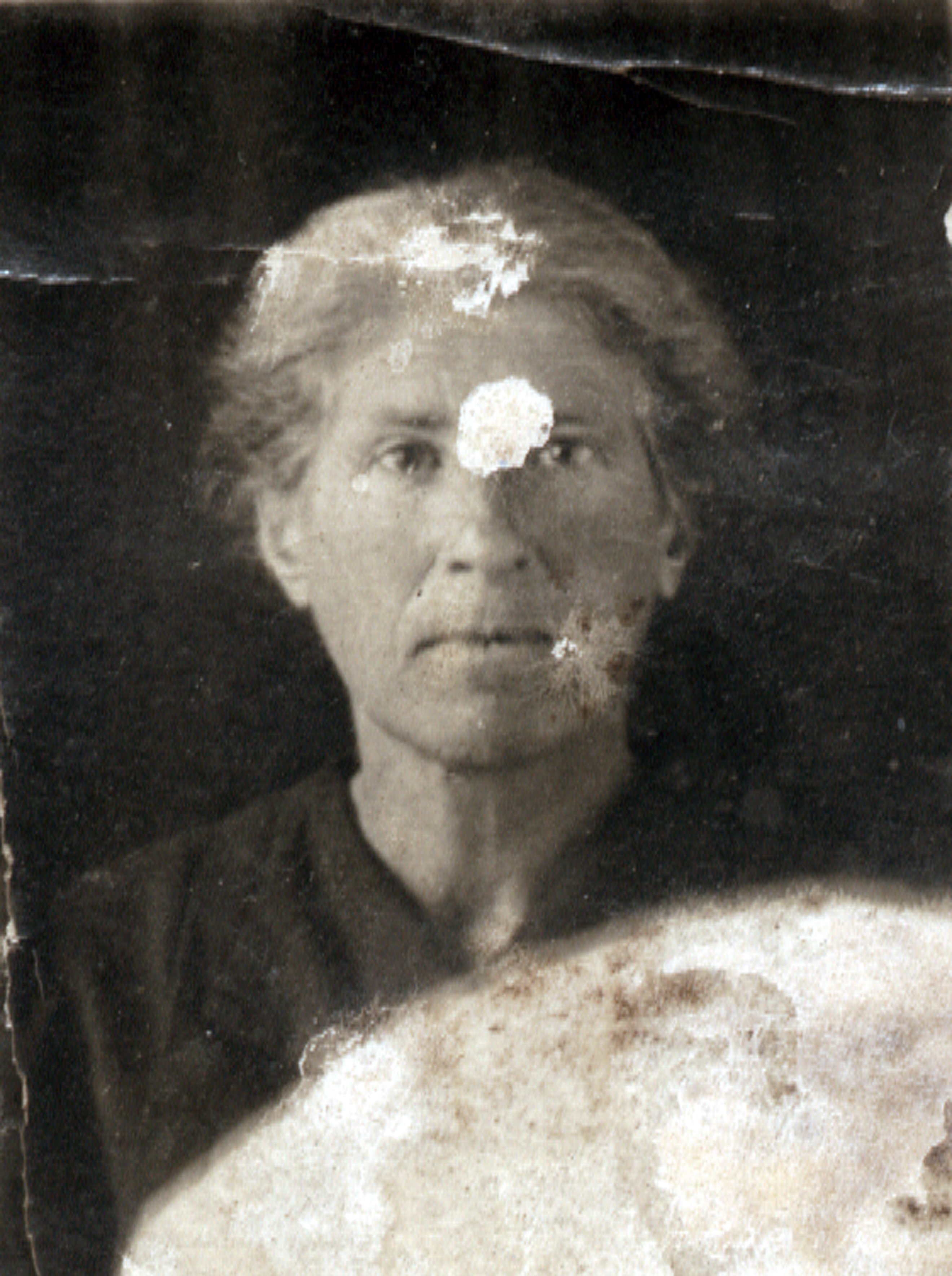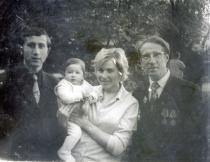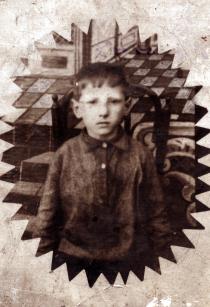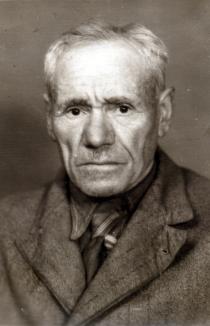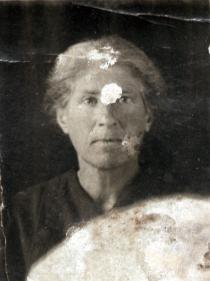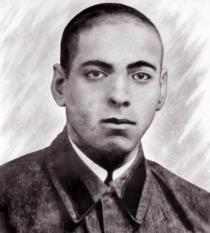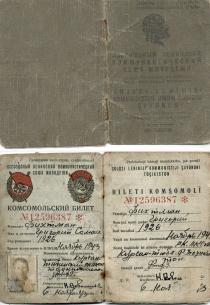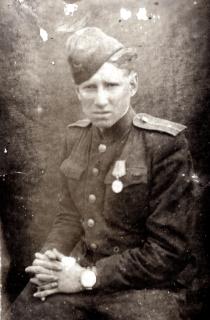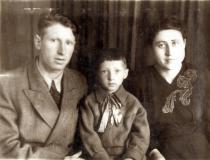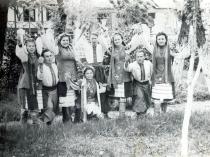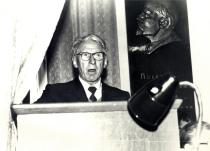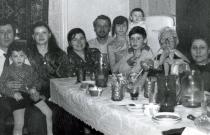This is my mother Sima Fihtman. This photo was taken in Zhmerinka in 1940.
This is the only photograph of my mother. It was made for her passport.
My mother Sima Fihtman was born in Dzygovka in 1886. She finished a primary school in Dzygovka and then studied in a grammar school in Yampol for two years. Her parents wanted to give her good education. I don't think they were wealthy. We didn't have any valuables proving my grandparents' wealth somehow. My mother was short, thin, nice and quiet. When I went to the primary school she helped me do my homework. She also liked embroidery and I can still see her works before my eyes like in a dream. My parents got married in 1908. My father took my mother to Odessa where they had a wedding party. I have no doubts that they had a chuppah: it couldn't have been otherwise in those years. I know from my father that their first son died before he turned one year and a half. Their next two sons also died. I know that the name of one of these three boys was Zelman. When we lived in Zhmerinka I remember a photograph of a small boy. I asked my mother: 'Who is this?' and she answered: This is your brother Zelman, he was one year and a half when he died'. In 1916 my mother had her fourth son. They named his Abram. In 1921, during the period of horrible famine, my parents moved to Zhmerinka. They stayed in Zhmerinka for twenty years.
My parents weren't fanatically religious, but they always celebrated Jewish holidays. They went to the synagogue on holidays. My mother only used special crockery at Pesach. We didn't have anything non-kosher at home through 8 days of Pesach. We dressed up on holidays. My mother made matzah pudding, very delicious. The table was set according to the rules: something bitter, matzah and everybody had their own wine glasses. I don't remember any details, though. I can still see my little blue cup with 'Pesach' engraved on it. I remember well that there was the first night and the second night. My father recited the prayer and told me a little about the history of this holiday. He said it was necessary to drink four glasses of wine, but we only sipped wine from our glasses. There were no guests; everybody celebrated with their own families. We also celebrated Rosh Hashanah and Yom Kippur. My mother and father fasted. I began to fast when I studied in the 6th or 7th grade. We also lit candles at Chanukkah: another candle each day, 8 candles in total. I liked playing with a whipping top. I also received Chanukkah gelt of few kopecks. I don't remember much of Purim, but I remember that my mother baked hamantashen and told me why they had to be this shape.
My mother was a housewife. She was a very good housewife: the house glittered with cleanness. My mother mainly cooked kosher food. Dairy and meat products were never mixed. We didn't have pork. Chickens were taken to a shochet. It was my duty to go to shochet. There was a big market in Zhmerinka where mother bought sour cream, milk and cottage cheese. We bought sugar and pasta in stores, but we didn't buy many products there. My mother made noodles at home. She also baked delicious pastries, although she didn't do it often. She made pies with cherries and poppy seed rolls.
My mother died on the 1 November 1942 during evacuation in Kurgan-Tubeh (Tajikistan). I was to turn 16 in a month. When I started telling somebody what my mother was like I always added that I didn't have time to know what she was like when she deceased.
